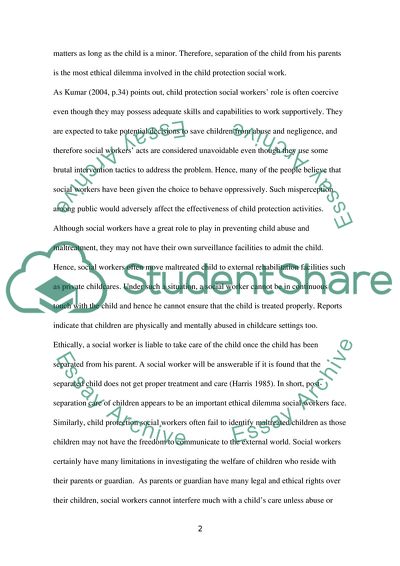Cite this document
(“Ethical dilemmas that a social worker working in child protection Essay”, n.d.)
Ethical dilemmas that a social worker working in child protection Essay. Retrieved from https://studentshare.org/miscellaneous/1601442-ethical-dilemmas-that-a-social-worker-working-in-child-protection-would-encounter-australia
Ethical dilemmas that a social worker working in child protection Essay. Retrieved from https://studentshare.org/miscellaneous/1601442-ethical-dilemmas-that-a-social-worker-working-in-child-protection-would-encounter-australia
(Ethical Dilemmas That a Social Worker Working in Child Protection Essay)
Ethical Dilemmas That a Social Worker Working in Child Protection Essay. https://studentshare.org/miscellaneous/1601442-ethical-dilemmas-that-a-social-worker-working-in-child-protection-would-encounter-australia.
Ethical Dilemmas That a Social Worker Working in Child Protection Essay. https://studentshare.org/miscellaneous/1601442-ethical-dilemmas-that-a-social-worker-working-in-child-protection-would-encounter-australia.
“Ethical Dilemmas That a Social Worker Working in Child Protection Essay”, n.d. https://studentshare.org/miscellaneous/1601442-ethical-dilemmas-that-a-social-worker-working-in-child-protection-would-encounter-australia.


